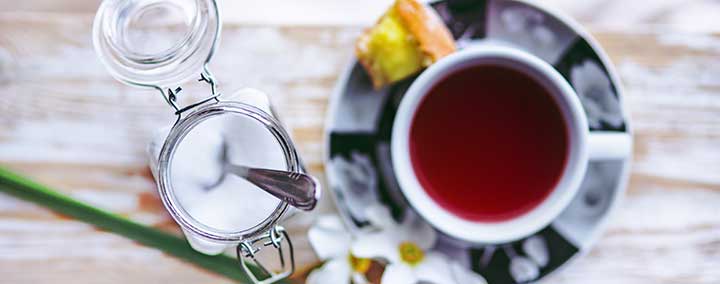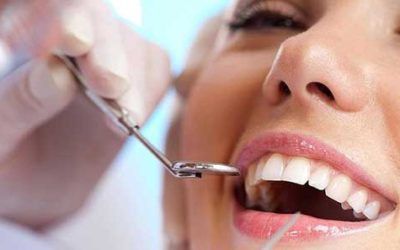When you get up in the morning and are dragging with no energy, you reach for a cup of tea or coffee. While there are health benefits to drinking tea or coffee in the morning, you don’t want to negate them with adding a couple spoons of sugar to your mug.
So what are the best sugar alternatives for tea?
Honey
Honey is a great sweetener for your tea. It’s natural, and flavors it well. However, while honey is natural, it’s not exactly low in sugars or low in calories. In fact it has the same sugars (glucose and fructose) as table sugar. And that is what most are trying to get away from. So what other sugar alternatives are available?
Agave
Agave is often viewed as a healthier alternative to sugar, and it definitely is more “natural” than refined sugar. Agave doesn’t cause a spike in blood sugar and that’s because the dominant sugar is fructose, which has been the subject of much criticism lately in leading to the same problems of insulin resistance as seen with high fructose corn syrup.
Stevia
Stevia is another sweetener that everyone has jumped on board with. The stevia sweetener comes from an herb and is “generally recognized as safe” according to the FDA. Stevia does come with some minor side effects. People have reported bloating and nausea after ingesting stevia and according to Livestrong.com people with diabetes should not consume stevia, as it can lead to hypotension or hypoglycemia. And while stevia is very sweet, it does have a bitter aftertaste similar to licorice.
Xylitol
Xylitol as a sugar alternative for tea or coffee is perfect. Xylitol has a nearly 1:1 sweetness ratio with sugar. That means you can use as much xylitol as you would normally sugar, only with 40% fewer calories and carbs. Xylitol contains no bitter aftertaste and can perfectly sweeten tea or coffee. It also has added dental benefits when consumed in appropriate amounts as it prevents dental caries. Some who use an over-recommended amount of xylitol have reported bloating and diarrhea. However, when used in the recommended amounts of 6 – 10 grams scattered throughout the day, individuals should experience little to no discomfort. The dental benefits of xylitol in reduced tooth decay are best obtained by several exposures over the day–the researchers say ‘strive for five’, which is associated with about an 80% reduction in decay. Gums and mints can help but the most economical way is just to use xylitol to sweeten your beverages and foods.
We obviously recommend xylitol as your sugar alternative for tea or coffee, but the decision of what you put in your body is ultimate yours. If you have any questions about xylitol comment and let us know, or visit our other blogs to learn more.
Related Articles
Is Your Dentist Recommending Xylitol? Why Not?
Xylitol is the most effective way of preventing tooth decay we know of.
Does Xylitol Make a Good Sweetener?
Health conscious people recognize that sugar and artificial sweeteners present serious problems for your body. Over the years, artificial sweeteners have been linked to everything from neurological disorders to cancer, and more. While the results of these studies are...
Great Ways to Use Xylitol as a Sugar Substitute
Xylitol sugar substitute options are almost endless. If you’ve never used xylitol, then you are in for a treat, literally! The different ways that you can use xylitol is nothing short of amazing. Let’s take a look at why this natural sweetener deserves a place in any...
Xylitol in the Diabetic Diet
The author this paper, H. Mehnert, is a German diabetologist who helped promote the use of implantable insulin pumps more than 40 years ago. He realized how much of a problem has come from our overuse of foods that contain sugars or, like...
The Benefits of Gum with Xylitol
The health and dental benefits of xylitol are numerous and, in fact, are so impressive that many people are left shocked. What is it about xylitol that makes it so beneficial? Why is xylitol such a perfect ingredient for gum and other dental...
Xylitol Research
Dental Benefits There is no better way to begin addressing this than to look at Kauko Makinen's work. He has been looking at xylitol and tooth decay from the beginning with the Turku sugar studies. Here is what he wrote this week (September 4,...









Xylitol is a naturally present substance found in the fibres of many fruits and vegetables and can be made in small amounts by the body. While it can be sourced from carbohydrate molecules (called polysaccharides) in the cell walls of birch and beech trees, rice, oat, wheat and cotton husks, the main source of xylitol for commercial use is corn cobs. Once extracted and processed, you’re left with a white, crystalline powder that looks like sugar. It has the same sweetness as sugar and has become a popular sweetner in food and health products.